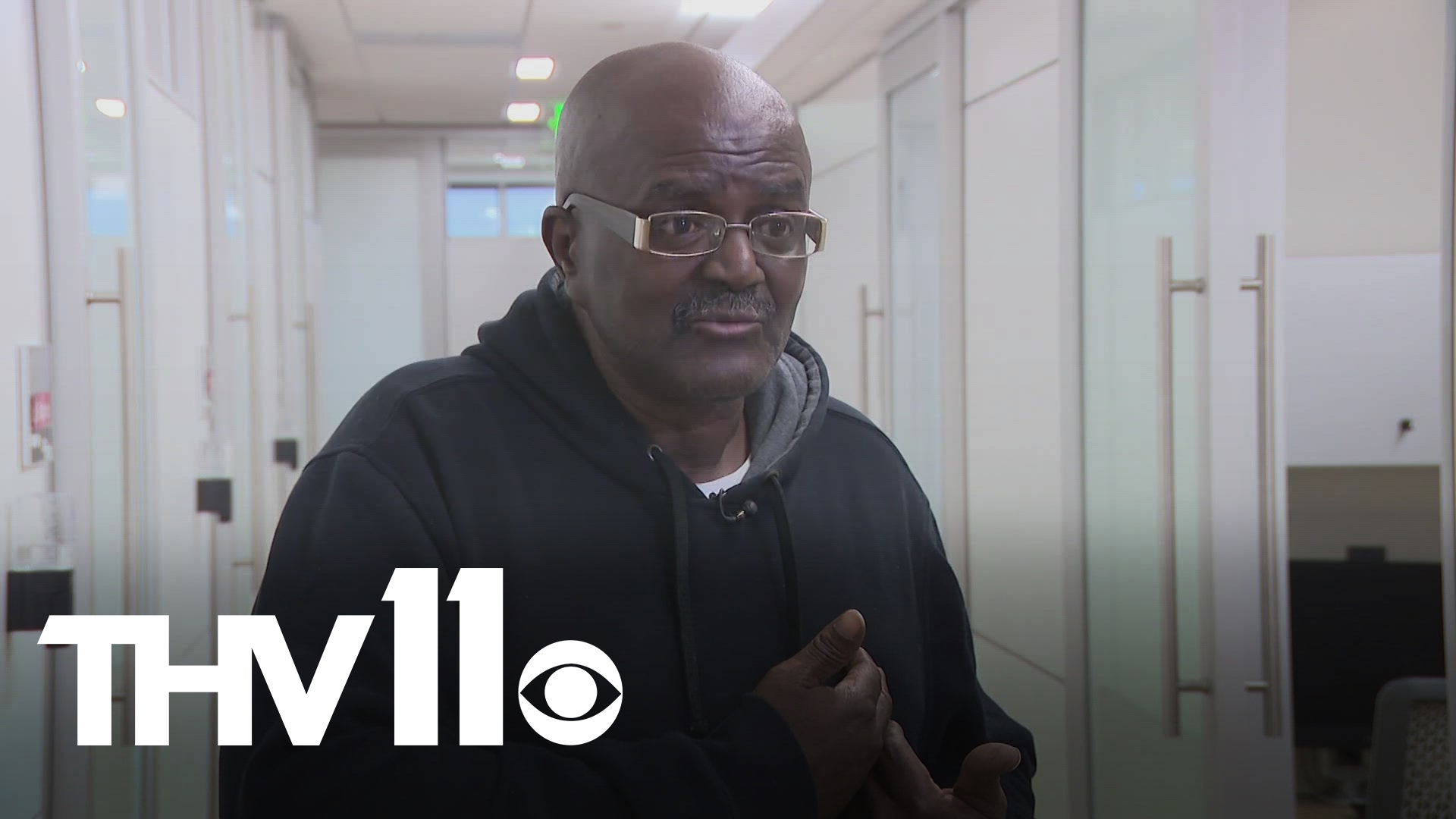LITTLE ROCK, Ark. — November is National Lung Cancer Awareness Month, which aims to make us more familiar with this often-deadly disease, and how to prevent it.
Ray Sawyer of Little Rock is living proof of how advances in medicine have given those who receive a dreaded diagnosis, hope for a future, and of conquering cancer.
Sawyer is familiar with the UAMS Winthrop P. Rockefeller Cancer Institute, which became like a second home during his many treatments as he battled lung cancer, beginning in May of 2021.
Sawyer said the disease hit him without warning one random day while he was on a job his construction team was working.
“One day, I was walking around the yard on my job, right before even nine o'clock. Hadn't even gotten into the day good. It just hit me all of a sudden, you know. I went down, weak and coughing. Coughing so much," he explained.
Ray said he’d been dealing with a lingering cough but blamed it on something like COVID-19. However to be safe, that day, he left work and drove straight to the emergency room.
After some tests, the doctor delivered the news he'd already begun to fear.
“He came in, and he told me. He came in, looked at me, and shook his head. I looked at him and shook my head. I said, “It's cancer.” He said, ‘Yeah, Mr. Sawyer, it's cancer," he recalled.
Soon, Ray met with Dr. Kostas Arnaoutakis, a cancer surgeon and specialist at the cancer institute.
“Lung cancer, despite the progress that we have made, still is the number one cause of cancer-related deaths in the United States for men and women,” Dr. Arnaoutakis said.
He explained that Ray's lung cancer had spread to other parts of his body and was in Stage 4, the most serious stage of any cancer. The team chose to treat Ray with chemo and immunotherapy, a combination that proved successful, giving Ray the ability to eat without trouble swallowing, once his cancer-filled lymph node started to shrink.
“He had a fantastic response with chemo and immunotherapy together. So, we combined chemo and immunotherapy. He had four chemotherapy treatments; each one every three weeks. Then we continued with immunotherapy alone for two years," Dr. Arnaoutakis described.
Ray said the joy and relief of growing stronger allowed him to face the darker days when he had little hope that he would survive.
“Mentally, spiritually, physically, you just exist. But as I started with the chemo, I could feel myself getting better and better, and stronger and stronger," he said.
According to Dr. Arnaoutakis, immunotherapy is now a game-changer in many cancer treatments. He describes it as jumpstarting the body's immune system, so it attacks cancer cells while leaving healthy ones alone.
He also added that Stage 4 lung cancer is no longer the death sentence it once was, and more patients like Ray are continuing their journeys to the all-important five-year survival mark.
“It would have been extremely rare to see patients five years later, being alive. Now, with the advancement of science, in particular immunotherapy, we see patients like him being alive three and a half years later, on no treatment, and looking forward to the five-year milestone," he added.
For Ray, the downtime from work during treatments and now recovery is spent with his wife, children, and grandchildren. The battle changed his thoughts on how precious life truly is when an illness threatens to take it away.
“I can appreciate life now. The things in life that most people took for granted, that I took for granted myself, like the really simple stuff, the air that I’m breathing," he described. "I can sit in my backyard, and I can look at the trees, and I can listen to the birds. You know what I’m saying? Only, this is beautiful to me because it was almost taken from me."
According to the American Cancer Society, smoking remains the number one risk factor for lung cancer, leading to 80% of lung cancer deaths. But even nonsmokers can get lung cancer, accounting for 20% of cancer deaths.
Screenings are available to all, and you can find out more from your primary care doctor.

